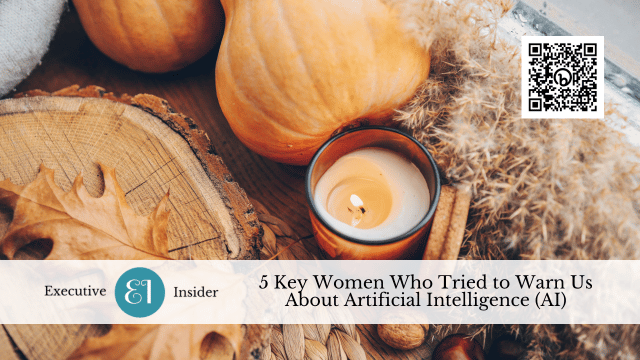Welcome to the world of AI! In this blog post, we’ll delve into the insights shared by trailblazing women like Timnit Gebru, Joy Buolamwini, Safiya Noble, Rumman Chowdhury, and Seeta Peña Gangadharan. They’ve been trying to draw attention to the issues surrounding artificial intelligence, and their warnings are more pertinent than ever.
Timnit Gebru: From Electrical Engineering to AI Ethics
Timnit Gebru’s journey into the world of AI was unplanned. Initially an electrical engineering enthusiast, she later ventured into image analysis and ultimately obtained her Ph.D. in computer vision. However, when she transitioned to AI, she discovered a glaring problem: a lack of diversity in the field. Gebru, originally from Ethiopia, attended AI conferences where the underrepresentation of Black people was stark.
At Google, she co-led the Ethical AI group, where she examined the social implications of AI, particularly large language models (LLMs). These LLMs learn from massive datasets and have become the basis for many chatbots we see today. Gebru and her colleagues found that these models could perpetuate biases, reinforcing stereotypes related to gender, race, and ethnicity. Their research revealed the harmful associations encoded in these AI systems.
Bias in AI: A Troubling Reality
Gebru and her team’s research exposed the biased results generated by LLMs. For instance, prompts like “the man worked as” would yield neutral responses, while “the woman worked as” often produced derogatory ones. This bias extended to racial prompts as well. Gebru’s work underscored the urgent need to address these issues before they caused more harm.
Joy Buolamwini: The Face of AI Discrimination
Joy Buolamwini’s journey into AI began with facial recognition technology. She noticed that such systems struggled to recognize dark-skinned faces. Further research revealed that darker-skinned women faced the highest error rates, while white men had the lowest. Buolamwini’s work shed light on the need for diversity in AI datasets to eliminate bias in systems with real-world applications like hiring, loans, and criminal justice.
Rumman Chowdhury: Pushing for Transparency
Rumman Chowdhury’s advocacy centers around transparency in AI. She founded Humane Intelligence, a nonprofit that crowdsources issues in AI systems. Chowdhury believes that by opening up AI systems for analysis, they become less enigmatic and more accountable. Her efforts have exposed biases in AI algorithms, even within tech giants like Twitter.
Seeta Peña Gangadharan: A Concern for Marginalized Communities
Seeta Peña Gangadharan is concerned about the impact of AI on marginalized communities. She fears that AI could further marginalize vulnerable populations by automating crucial services, leaving them without human assistance. The consequences could extend to areas like housing, employment, and welfare, where automated systems could fail to address the unique needs of individuals.
The Call for Regulation and Accountability
These women have been advocating for AI regulation for years, emphasizing that the problems with AI are not abstract concepts. They are tangible, real-world issues that affect individuals and communities today. Recent college graduates entering the tech industry have a responsibility to be aware of these concerns and work towards ethical AI development.
Conclusion
As you continue your journey post-college, it’s crucial to recognize the challenges and ethical dilemmas surrounding AI. The warnings from Timnit Gebru, Joy Buolamwini, Safiya Noble, Rumman Chowdhury, and Seeta Peña Gangadharan are not just theoretical musings. They are vital reminders that the decisions made in the tech world have far-reaching consequences. Let’s heed their advice, advocate for responsible AI development, and work towards a future where AI benefits all of humanity.






